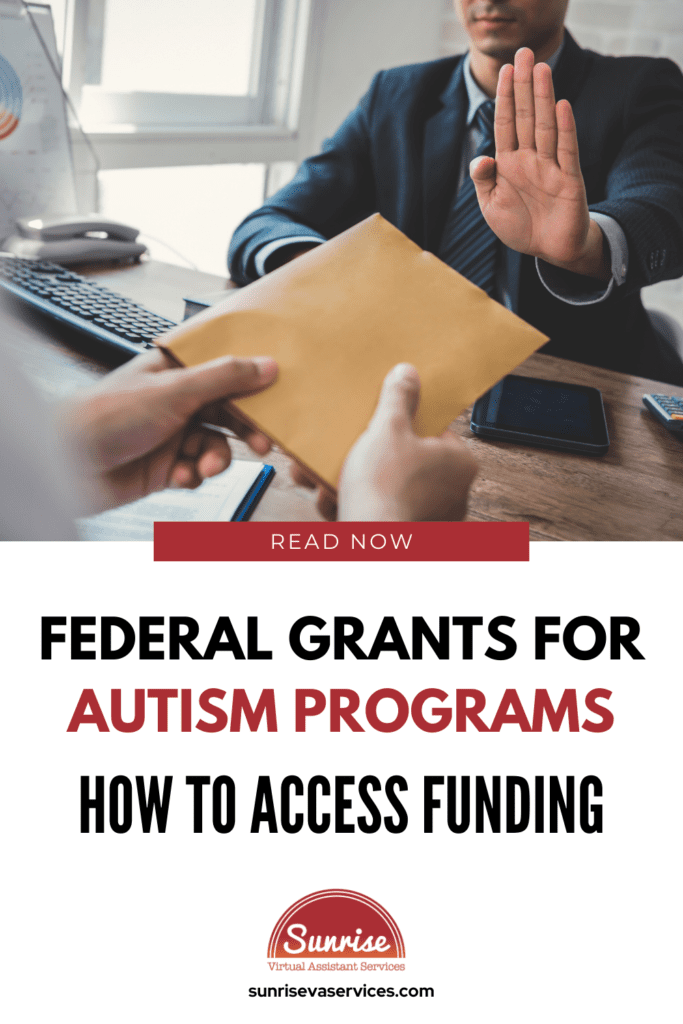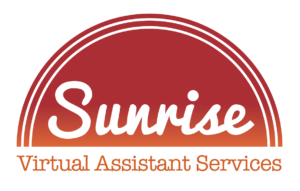Federal Grants for Autism Programs provide a vital opportunity to secure financial support for initiatives that make a positive impact in the lives of individuals with autism spectrum disorder (ASD).
Nonprofits, educators, and caregivers can utilize these grants to enhance therapies and provide essential resources for neurodivergent children and adults.
While the grant application process may seem overwhelming, it is a big step towards creating a meaningful impact.
This guide will walk you through some general options, the application process, proposal tips, and real-life success stories. Keep reading to learn more.
Types of Federal Grants for Autism Programs
To access federal funding, you must understand the various available grants. Some of the most common areas federal programs target include:
- Therapy and Health Care Services:
- Funding for therapy sessions such as ABA, occupational, and speech therapy.
- Support for assistive technology, including communication devices and medical equipment.
- Educational Programs and Support:
- Grants supporting special education services and training programs for educators.
- Initiatives that promote educational materials and services tailored for autistic students.
- Post-secondary education funding opportunities for independent living skills programs.
- Social Development/Community Programs:
- Helping with social skills, offering engaging activities, and tackling specific challenges like getting housing grants.
- Autism Research Grants:
- Federal programs, including the NIH, provide funding for research on the causes, treatments, and behavioral analysis of autism spectrum disorder (ASD).
- Government-funded research studies aimed at improving outcomes for individuals with autism and their families.
- Financial Assistance for Families:
- Financial resources support families to manage the medical expenses, health insurance gaps, and daily financial burdens associated with autism services.
These grants are available through various agencies, including the Department of Health and Human Services (HHS), the Department of Education, and programs like the IDEA (Individuals with Disabilities Education Act).
How to Find and Apply for Federal Grants
Step 1: Research Available Grants
Start by exploring trusted sources like:
- Gov websites like Grants.gov and the Department of Health for official listings of government grants.
- Autism organizations, including Autism Speaks, share valuable resources and funding opportunities.
- The NIH Guide lists funding sources for research projects and autism-focused initiatives.
Step 2: Determine Eligibility
Each grant has its own specific guidelines. Pay close attention to:
- Eligibility criteria: Focus your program on special needs, community organizations, or educational initiatives.
- Specific requirements for nonprofits, educators, or community-based organizations.
Step 3: Compile Necessary Information
Gather essential details, such as:
- Program descriptions and goals.
- Financial needs and projected budget.
- Supporting documentation, like autism diagnosis data, behavior analysis plans, or community impact evidence.
Step 4: Write and Submit the Proposal
Follow the steps outlined in the grant application. Ensure all sensitive information is accurate and well-organized. Be mindful of submission deadlines and platforms.
Step 5: Follow Up
After submitting your grant applications, track progress and follow up with the respective agencies if necessary. Proactive communication can go a long way in showing your commitment to the program.
Tips for Writing Strong Grant Proposals
Standing out in a competitive pool of grant funding applications requires precision, creativity, and a clear vision. Here are professional tips to help secure funding:
- Define the Need with Data
Demonstrate the specific needs of your program by using current ASD statistics, such as autism prevalence rates or specific community gaps your program will address.
- Create a Detailed Budget
Lay out a realistic budget that includes all costs, from therapy sessions and medical equipment to educational materials or staff training.
- Articulate Measurable Goals
Outline clear, measurable objectives and include how the success of your program will be evaluated. For example:
- Increase social interaction and communication skills for autistic children by 30% within six months.
- Showcase Expertise
Highlight the unique qualifications of your team (e.g., trained ABA therapists and special education experts) to instill true confidence in your ability to execute the program successfully.
- Tailor to Specific Guidelines
Customize each application to the specific program requirements. Address every detail mentioned in the guidelines to show diligence.
- Seek Feedback
Have peers, professionals, or grant writing services like Sunrise Virtual Assistant Services review your application to refine and polish your proposal.
Addressing Challenges in the Grant Process
Applying for federal grants for autism programs isn’t without its hurdles. Here’s how to address them:
- Limited Understanding
Leverage educational resources to deepen your knowledge of application processes. Platforms like Grants.gov offer training kits and webinars.
- High Competition
Set your proposal apart with compelling narratives about the unique needs of your community and specific programs.
- Demonstrating Impact
Use data-driven arguments to highlight the impact of your program, backed by real-world stories or additional information about expected outcomes.
- Time Constraints
Consider outsourcing the writing process. For instance, hiring Sunrise Virtual Assistant Services can save you hours while ensuring your submissions are professional and persuasive.
How Sunrise Virtual Assistant Services Can Help
Grant writing takes significant effort and expertise, which can strain the capacities of busy nonprofits or small organizations. Sunrise Virtual Assistant Services specializes in crafting impactful grant applications tailored to meet specific requirements, ensuring your proposal has the best chance of success.
Whether you need help organizing your financial resources, understanding eligibility guidelines, or simply polishing your proposal, we’re here to support you every step. Contact us today for warm, professional, and dedicated assistance in creating grant applications that make a difference.
Federal grants are a valuable resource, and taking the right approach can create positive outcomes for your community. Need help getting started? Reach out to Sunrise Virtual Assistant Services to take your next step toward securing funding!


